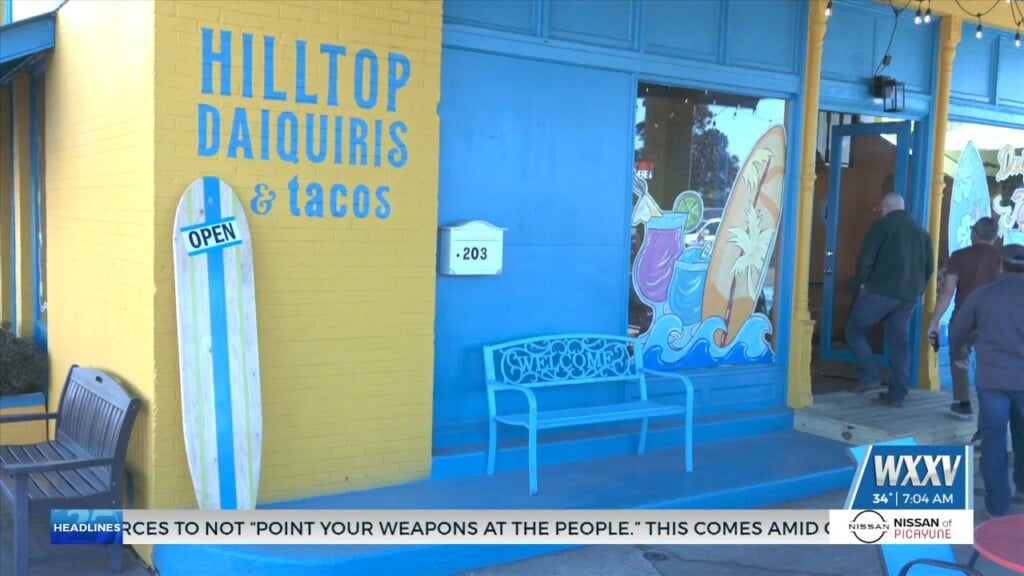Initiative Trains Local Youth in Coastal Restoration to Assist in Gulf Oil Spill Recovery
The Gulf Coast Restoration Initiative (G.C.R.I.) was developed through a partnership between The Corps Network (T.C.N.) and The Walton Family Foundation. Under this initiative, The Corps Network partnered with The Nature Conservancy (T.N.C.) to fund the current pilot project through T.N.C.’s Coastal Stream and Habitat Restoration and Management Initiative. With funding from the Mississippi Department of Environmental Equality (M.D.E.Q.) and the National Fish and Wildlife Foundation (N.F.W.F.) Gulf Environmental Benefit Fund, T.N.C. created this initiative in response to the 2010 Deepwater Horizon Oil Spill.
The Corps Network, the national association of Service and Conservation Corps, is leading the pilot project through a partnership between Texas Conservation Corps, one of T.C.N.’s member Corps programs, and CLIMB C.D.C., a nonprofit workforce development organization based in Gulfport, MS and The Corps Network’s first member in Mississippi. The goal of this pilot project is to develop a local workforce skilled in water monitoring and environmental field techniques.
Service and Conservation Corps are comprehensive youth development programs that engage diverse, and often disadvantaged, young people (16 – 25) in service projects designed to address important environmental and community needs. Corpsmembers receive a living allowance, scholarship money and access to counseling and career-planning assistance. Through participating in service projects, Corpsmembers gain hands-on job experience and earn credentials. By expanding and developing Service and Conservation Corps in the Gulf States, the G.C.R.I. will repair and revitalize the Gulf’s coastal ecosystems while seeking to prepare local youth for in-demand jobs in aquatic resource management.
“This is a fantastic example of communities connecting with their natural resources and protecting their livelihoods as well as the ecosystems around them,” said Tom Mohrman, The Nature Conservancy’s Director of Marine Programs. “The Corpsmembers are collecting important data that can help inform restoration plans that can make these habitats and communities less vulnerable to coastal hazards.”
During the first week of the five-week G.C.R.I. pilot project, an eight-person crew, consisting of six Corpsmembers from the local community (plus two Crewleaders from Texas Conservation Corps), will undergo training in water monitoring techniques, construction, water safety and basic First Aid. Over the following four weeks, the crew will travel throughout Hancock, Harrison and Jackson Counties to sample water quality, aquatic invertebrate populations, and freshwater fish populations. On October 24th, 2014, The Corps Network will, in conjunction with United Way of South Mississippi’s Leo Seal Jr. Day of Caring, host a G.C.R.I. Day of Service to engage community members in a service/learning project at Gulf Islands National Seashore’s Davis Bayou.
“The Gulf Coast Restoration Initiative addresses multiple issues in communities affected by the Gulf Oil Spill and other recent environmental disasters,” said John Hosey, The Corps Network’s Director of Gulf Coast Restoration Development. “This model will help restore the coastal habitats that are vitally important to our economy while employing our youth and returning veterans in meaningful jobs. Corps have a long history of successfully responding to disasters and meeting critical community needs in a cost-effective manner; I’m excited to see what Corps can do for our communities in the Gulf.”
“We’re pleased that graduates of CLIMB C.D.C.’s Workforce Training Institute are serving as crew members for this important coastal project,” said Lori West, C.E.O. of CLIMB C.D.C. “Our partnership with The Corps Network extends the commitment we made in 2010 to restore the lives of residents and the ecosystem of the Coast following the Deep Horizon Oil Spill.”
Following the five-week pilot project, Corpsmembers will understand how to analyze the physical and chemical properties of soil, sediment, and water samples; know how to identify native and invasive species; know how to use and apply G.P.S. technology; understand how to assess the health of a coastal ecosystem; earn OSHA 10-hour construction safety; complete Coast Guard Water/Boat safety, and gain numerous other important skills.




Leave a Reply